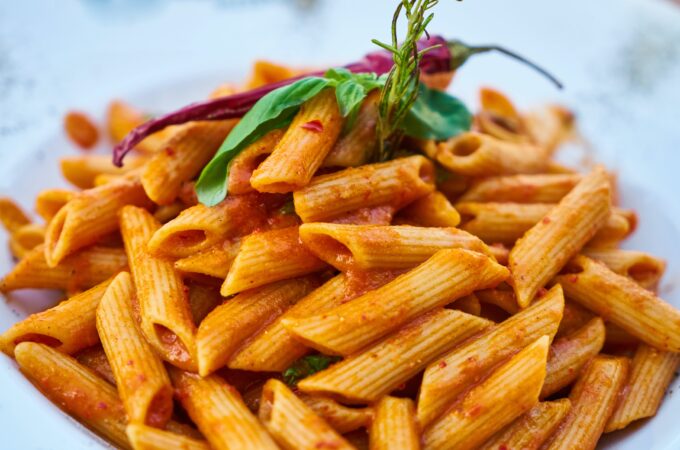
A Comprehensive Guide to an Anti Inflammatory Diet
An anti-inflammatory diet is a dietary pattern that aims to minimize inflammation in the body by incorporating foods that are believed to have anti-inflammatory properties. This may involve selecting foods that are rich in antioxidants, healthy fats, and omega-3 fatty acids, and limiting foods that are high in added sugars, refined grains, and unhealthy fats. This type of diet may be helpful in reducing the risk of chronic diseases associated with chronic inflammation, such as heart disease, cancer, and diabetes.
What is Inflammation?
Inflammation is a natural immune response that occurs in response to tissue damage, infection, or injury. It is a normal and necessary process that helps to protect the body and promote healing. During inflammation, various chemicals and immune cells are released in order to remove the source of the injury or infection and begin the healing process. This can cause symptoms such as redness, swelling, heat, pain, and stiffness.
There are two main types of inflammation: acute and chronic.
- Acute Inflammation: is a short-term response that typically resolves once the cause has been removed or the injury has healed.
- Chronic Inflammation: is on the other hand is a long-term, low-level inflammation that persists over time. It has been linked to the development of a number of chronic diseases, including heart disease, cancer, and diabetes
Can you Prevent Chronic Inflammation Through Diet?
Your diet can play a role in the development and management of chronic inflammation. Some research suggests that certain dietary patterns, such as those high in processed foods, refined grains, and unhealthy fats, may increase the risk of chronic inflammation and related chronic diseases. On the other hand, other dietary patterns, such as those rich in fruits, vegetables, whole grains, and healthy fats, may have anti-inflammatory effects and may help to reduce the risk of chronic inflammation.

Foods That Help You Avoid Inflammation
There are many foods that may help to reduce inflammation in the body. Some examples include:
Fruits and vegetables: These are rich in antioxidants and other anti-inflammatory compounds, and should be a key part of any anti-inflammatory diet.
Whole grains: Choose whole grains over refined grains, as they contain more fiber and nutrients and may have anti-inflammatory effects.
Nuts and seeds: These are good sources of healthy fats and antioxidants, and may help to reduce inflammation in the body.
Fatty fish: Fish that are high in omega-3 fatty acids, such as salmon, sardines, and mackerel, may have anti-inflammatory effects.
Extra virgin olive oil: This type of oil is rich in monounsaturated fats and antioxidants, and may have anti-inflammatory properties.
Turmeric: This spice is a source of curcumin, a compound with potent anti-inflammatory effects.
Ginger: This spice has been shown to have anti-inflammatory effects and may be helpful in reducing inflammation.
Garlic: This herb contains compounds that may have anti-inflammatory effects.
Foods That Trigger Inflammation
There are certain foods and dietary patterns that may contribute to inflammation in the body. Some examples include:
Processed foods: These are often high in added sugars, unhealthy fats, and artificial ingredients, which may contribute to inflammation.
Refined grains: Grains that have been stripped of their outer layer (bran) and inner layer (germ) are less nutrient-dense and may contribute to inflammation. Unhealthy fats: Saturated and trans fats have been linked to inflammation and should be consumed in moderation.
Added sugars: Excess sugar intake has been linked to inflammation and a number of other health problems.
Alcohol: Excessive alcohol consumption has been linked to inflammation and a number of other health problems.
Red meat: Some studies have suggested that consuming large amounts of red meat may increase the risk of inflammation and related health problems.
A Simple 7 day Anti Inflammatory Diet Plan
Here’s a simple 7-day anti inflammatory diet plan.
Day 1:
Breakfast: Overnight oats with berries, nuts, and a drizzle of honey
Lunch: Quinoa and black bean salad with avocado, cherry tomatoes, and a lemon-tahini dressing
Dinner: Grilled salmon with roasted vegetables and a side of brown rice
Day 2:
Breakfast: Green smoothie with spinach, banana, mango, and almond milk
Lunch: Turkey and vegetable wrap with hummus and a side of fruit
Dinner: Slow cooker lentil soup with a side of whole grain bread
Day 3:
Breakfast: Avocado toast with a fried egg and cherry tomatoes
Lunch: Grilled chicken and vegetable skewers with a side of quinoa
Dinner: Baked tofu with roasted vegetables and a side of brown rice
Day 4:
Breakfast: Greek yogurt with berries, nuts, and a drizzle of honey
Lunch: Black bean and sweet potato burrito with salsa and avocado
Dinner: Grilled salmon with a spinach and quinoa salad
Day 5:
Breakfast: Oatmeal with almond milk, cinnamon, and sliced bananas
Lunch: Turkey and avocado roll-ups with carrot sticks and hummus
Dinner: Baked sweet potato topped with black beans, salsa, and avocado
Day 6:
Breakfast: Green smoothie with spinach, banana, mango, and almond milk
Lunch: Quinoa and vegetable stir-fry with tofu
Dinner: Grilled chicken with roasted vegetables and a side of brown rice
Day 7:
Breakfast: Avocado toast with a fried egg and cherry tomatoes
Lunch: Grilled chicken and vegetable skewers with a side of quinoa
Dinner: Slow cooker lentil soup with a side of whole grain bread

Benefits of Following an Anti Inflammatory Diet
There are many potential health benefits of following an anti inflammatory diet. This may include:
Reduce the risk of chronic diseases: Chronic inflammation has been linked to the development of a number of chronic diseases, including heart disease, cancer, and diabetes. By following an anti-inflammatory diet, it may be possible to reduce the risk of these conditions.
Promote weight loss: Some studies have found that an anti-inflammatory diet may be helpful for weight loss. This may be due, in part, to the fact that this type of diet is typically low in added sugars and unhealthy fats, which can contribute to weight gain.
Improve digestion: An anti-inflammatory diet that is rich in fiber and other nutrients may help to improve digestive function and reduce the risk of digestive issues.
Promote healthy aging: An anti-inflammatory diet that is rich in antioxidants and other nutrients may help to support healthy aging by reducing the risk of age-related diseases and promoting overall health and well-being.
Conclusion
Inflammation is a normal and necessary part of the immune response, but chronic, long-term inflammation has been linked to a number of chronic diseases, including heart disease, cancer, and diabetes.
An anti-inflammatory diet may involve incorporating more fruits, vegetables, whole grains, and healthy fats, while limiting processed foods, refined grains, and unhealthy fats. It may also include the use of anti-inflammatory spices and herbs, and the inclusion of foods rich in omega-3 fatty acids.




